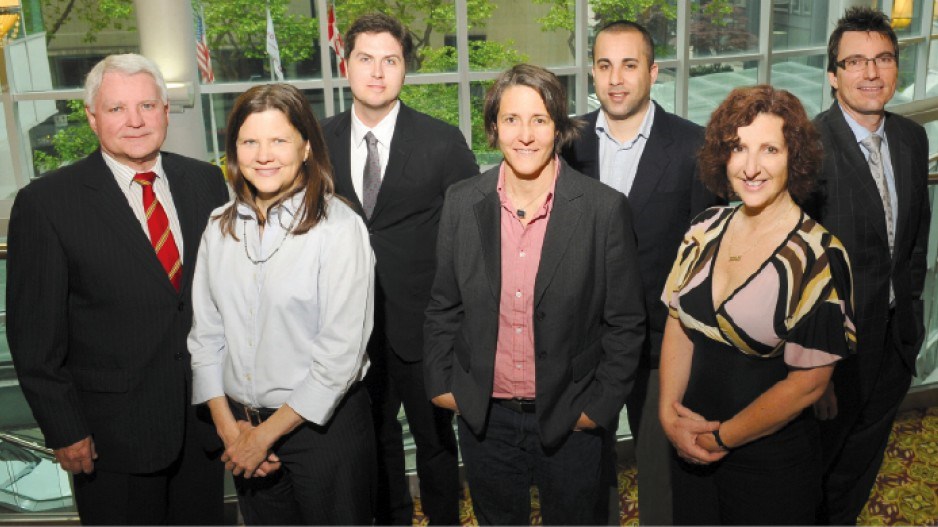Creating a culture of sustainability, modifying behaviour and increasing employee engagement were top of mind at Business in Vancouver’s Business Excellence Series Sustainability Breakfast June 5.
PanellistsWe need to “understand how to get people into a new frame, where they find it easy to think in a different way and they find it normal to think about their impact on things,” said Winham. “We’ve been so heavily trained to think about what we buy and what we own. We’ve been indoctrinated into that economy and turning the corner on that is tough.”
Winham added that one of the biggest challenges people face is the structure of workplaces.
“The ways we expect ourselves to function at work, the way we govern ourselves at work, the financial structures that we use, the way we talk about performance; we’re in a 300-year-old archetype and in order to get out of that we have to understand who we are as people without all that framing around us. We can’t change it tomorrow, but if people can’t have real conversations about what matters to them in the workplace, they won’t reach sustainability.”
Taschereau finds people are coming to her company asking three things:
•how to educate;
•how to change behaviour; and
•how to reduce material im-pact.
“I think there’s been profound change – a slow and steady plod in a new direction,” she said. “It’s very self-motivated – for example, growth in organic food that is double-digit, natural health care and beauty products, eco apparel and eco fashion. I think it’s motivated by health concerns, fear of toxins, ‘What’s in it for me?’ Consumers step up and say, ‘I’m questioning what you’re selling me.’”
During the BPA (bisphenol A) plastic water bottle scare,
“We said we’re not buying [those plastic bottles] and they were back in the market in two or three months without BPA. I see hope and a consistent trajectory toward better products.”
For Driedger, creating a culture of sustainability entails creating a clear vision and setting goals for everything you do and what you stand for. Perkins+Will’s 12 offices participated in a competition to reduce energy use, including turning off the water heaters, coffee machine and lights.
“It didn’t reduce productivity and some offices had sustained benefits,” said Dreidger. “Your eyes start opening to how you function.”
Lots of companies are taking that first step to start conversations in their company, said Winham.
“That’s the thing: to get people talking about this,” she said. “We need leadership where people say, ‘I really want to see this happen. I have a personal interest in making this change.’ Until people find their own personal story in this, it’s really hard to drive it through an organization.” •




